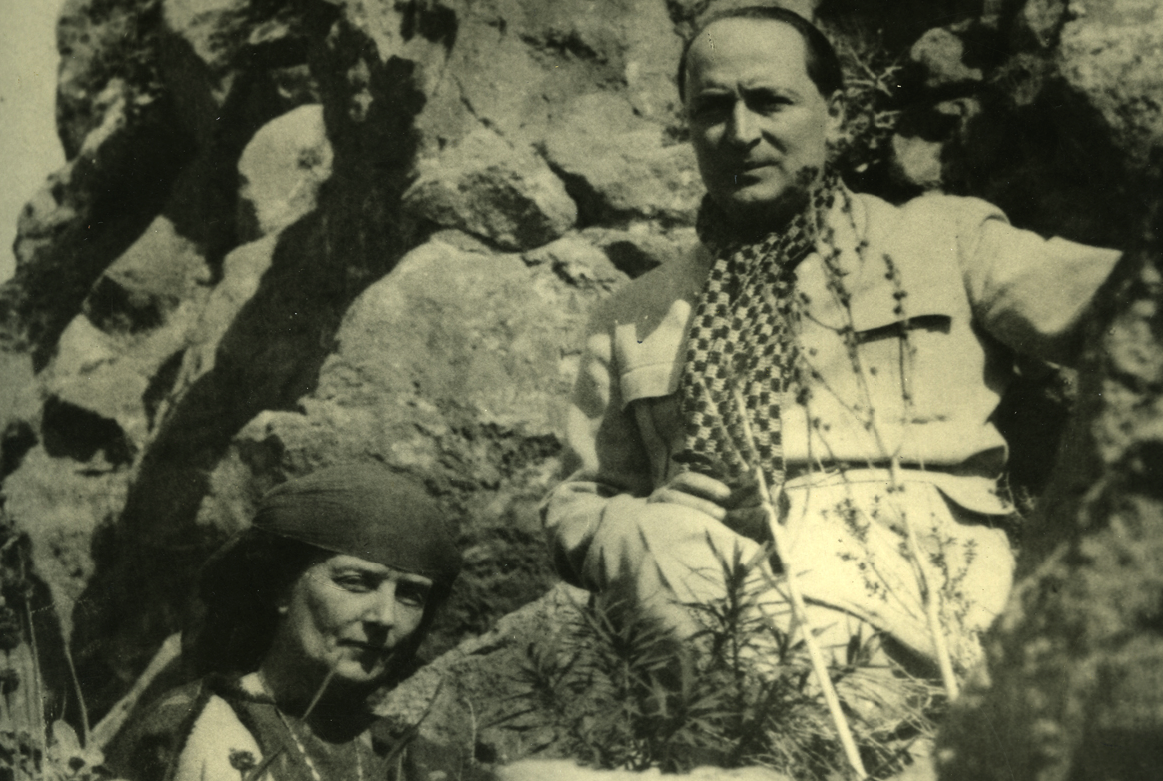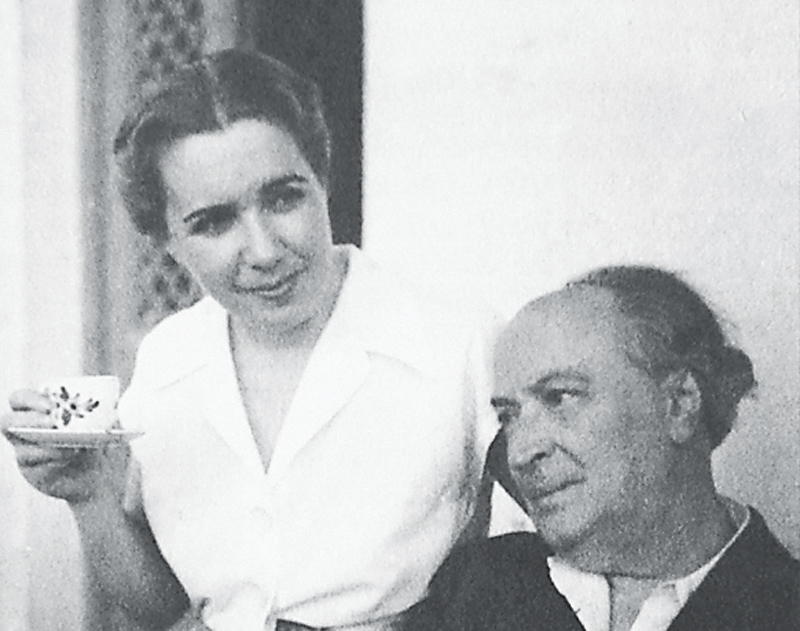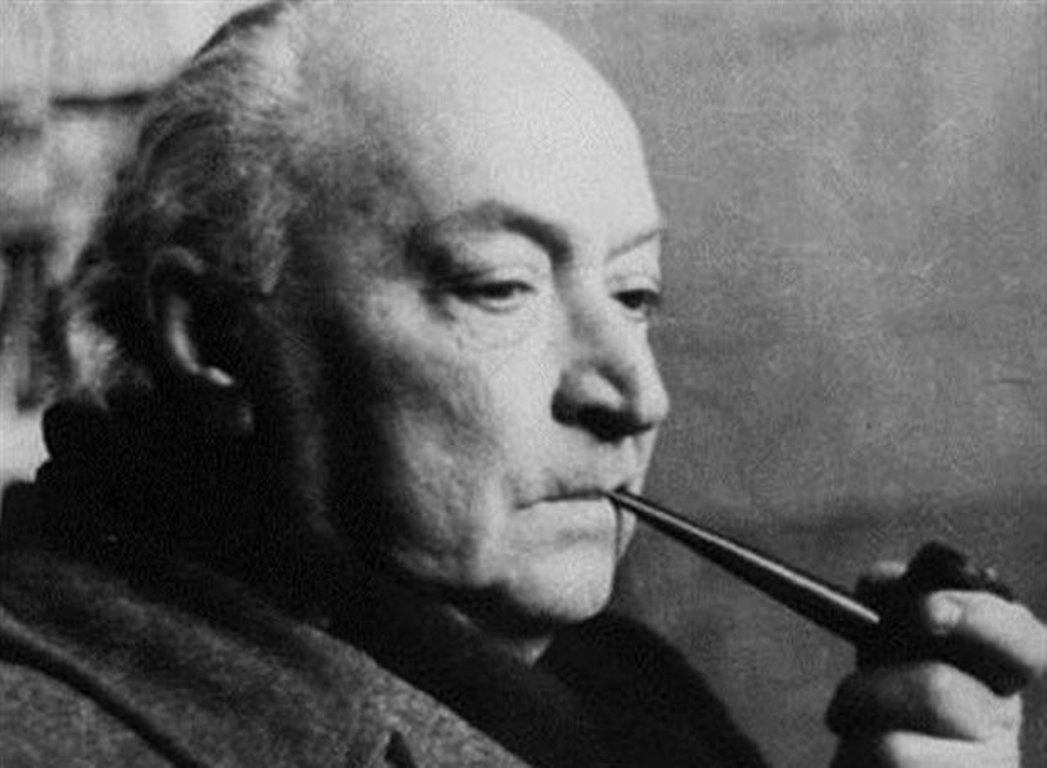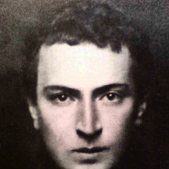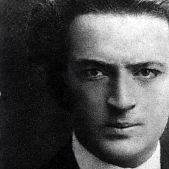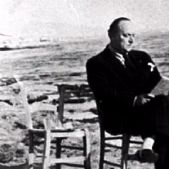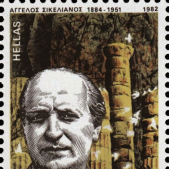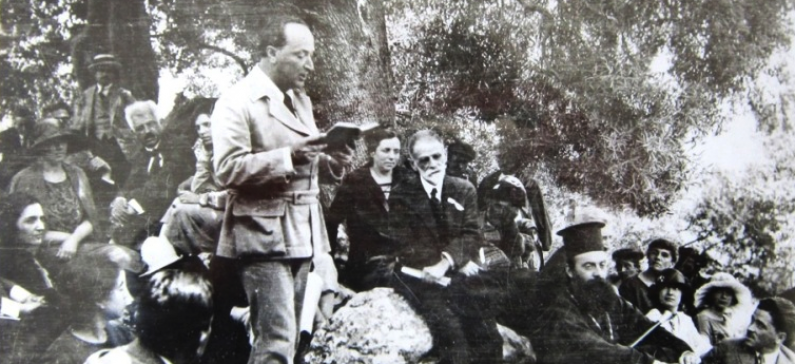
The great Greek lyric poet
Angelos Sikelianos was one of the greatest poets and playwrights and he was five times nominated for the Nobel Prize in Literature.
He was born on 15 March 1884 in Lefkada, where he spent his childhood. His father was a professor of the French language. In 1900, he went to Athens in order to study at the Law School but he never finished his studies.
His interest for poetry led him to study Homer, Pindarus, the Bible as well as foreign writers such as Gabriele D’Annunzio. The next years he travelled extensively and devoted himself to poetry and theater.
In 1907, he married Eva Palmer. They married in the United States and moved to Athens a year later. During that period, Sikelianos came in contact with Greek intellectuals, and in 1909 he published his first collection of poems,“Alafroískïotos”, which had an immediate impact and was recognized by critics as an important work.
During the Balkan Wars (1912-1913), in which he took part, he wrote patriotic poems, published in newspapers, magazines and in the poetic collection “Lyrics”. In 1914 he met Nikos Kazantzakis. They connect from the very beginning with a strong sympathy that evolves quickly into deep friendship (though not without tension: strong personalities, they argued and both for about eighteen years interrupted their relationships). They are recognized as spiritual companions. Here are the two philosophical considerations influenced by the model of the Superhero of Nigeria: man must go beyond the bounds of the established perception of morality and contribute with his power to the creation of a higher order of things. Mostly, however, they come across a common desire to explore the divine.
Sikelianos also wrote and published from 1915 to 1918 the philosophic poem“Prólogos Sti Zoí” (“Prologue to Life”), extracts from the“Pascha ton Hellenon” (“The Greek Easter”), the “Delphic Word” and studies. He had plenty of financial means and found the opportunity to constantly study, write, and travel. In 1927, with the support of his wife, Sikelianos held the Delphic Festival as part of his general effort towards the revival of the “Delphic Idea”. He believed that the principles which had shaped the classic civilization, if reexamined, could offer spiritual independence and serve as a means of communication among people. The event consisted of Olympic contests, a concert of Byzantine music, an exhibition of folk art as well as a performance of Prometheus Bound.
In March 1938 he meets Anna Karamani, the wife of the tuberculist Georgios Karamanis. Their acquaintance evolves into deep love, and he asks his wife for a divorce. She agrees, as does Doctor Karamanis. Their marriage will take place on June 17, 1940.
The tragedies of Sikelianos (Sibylla, Daedalus in Crete, Christ in Rome, The Death of Digenis and Asklepius, which are introduced by the long dramatic poem The Dithyramb of the Rose) are more notable for their lyric than their dramatic qualities.
During the German occupation, he became a source of inspiration to the Greek people, especially through his speech and poem that he recited at the funeral of the poet Kostis Palamas.
Sikelianos died on 19 June 1951 in Athens.
The five times that he was nominated for a Nobel Prize in Literature were:
1. In 1946, proposed by Swedish Academy member Anders Österling
2. In 1947, proposed by Nikos Vee, who proposed in the same year Nikos Kazantzakis, thinking that they should be awarded together
3. In 1948, proposed by a member of the Royal Academy of Letters, History and Antiquities of Sweden Axel W Persson and the member of the Swedish Academy author and journalist Elin Wägner. That year, Anders Österling, who proposed Sikelianos in 1946, proposed to share the prize with the winner of that year’s T. S. Eliot, but his proposal was rejected.
4. In 1949, proposed by the member of the Swedish Academy, author Sigfrid Siwertz
5. 1950, proposed with two proposals. One by the Hellenic Writers Society and one, together with Kazantzakis, by the Swedish Academy member, Hjalmar Gu
TIPS...
-In 1940 he married his second wife Anna Karamani.
-In 1943-1945 he was chairman of the Society of Greek Writers.
-He was nominated 5 times for the Nobel Prize in Literature.




